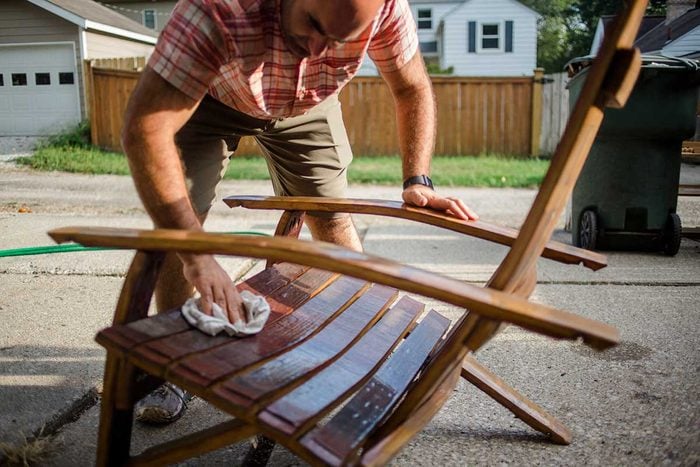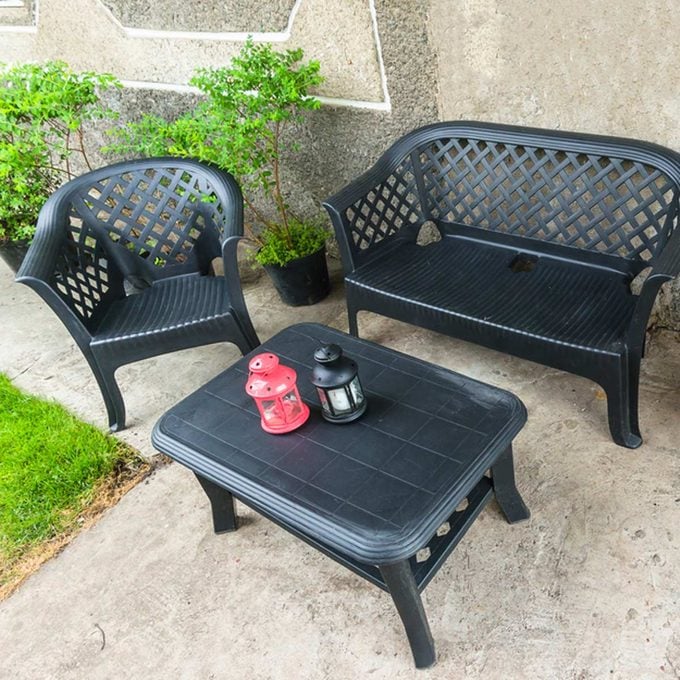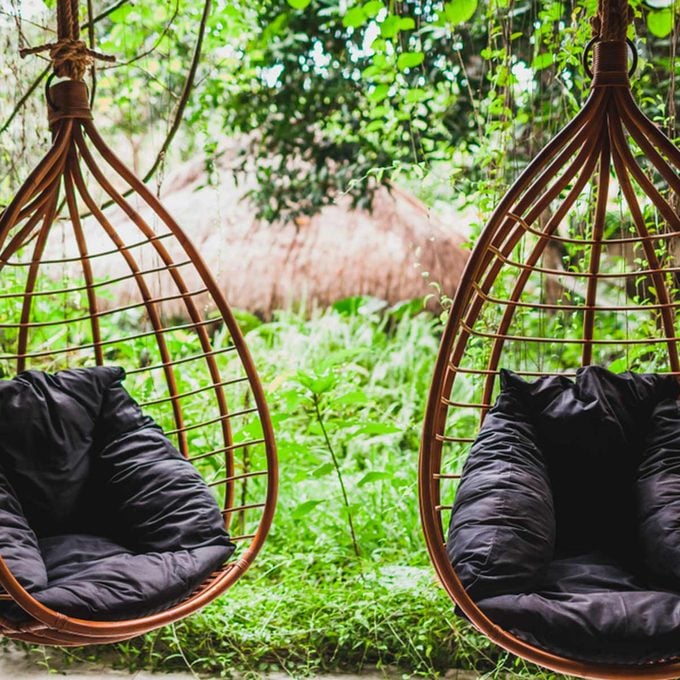How to Clean Outdoor Furniture of All Kinds
Updated: Apr. 10, 2024

Whether your patio furniture is made of metal, wood or plastic, keep it in top form with these tips for cleaning and maintaining.
Depending on how big your outdoor entertainment area is, and whether or not you bought at the best time, you probably spent several hundred to several thousand dollars, maybe more, on patio furniture. And whether it’s been baked under a broiling sun, soaked with wet towels or jumped on by muddy dogs, patio furniture takes a beating unlike any other furniture. So knowing how to clean your outdoor furniture is a must.
In the coldest, wettest seasons of the year, it’s best to store your patio furniture in a garage or shed. But if that’s not possible, you can buy patio furniture covers to fit just about any type of outdoor furniture. If you live where harsh weather is a part of daily life — think the extreme desert heat of Las Vegas or the torrential rains of Florida — be sure to invest in patio furniture made to stand up to those tough conditions.
No matter what type of patio furniture you have, these pro tips will keep it in top condition.
On This Page
How To Clean Metal Outdoor Furniture
Patio furniture is often made of metals like stainless steel, wrought iron, aluminum and tubular steel. “These common materials are used due to their durability and strength,” says Mark Feldman, chief home officer at online home furnishings retailer Riverbend Home. Of these, only aluminum won’t rust. But it’s so light it might get blown around the deck on a windy day.
- To restore metal furniture to its prime condition, Feldman recommends washing it with soap and water. Then, dry it with a cloth. “If you see any wear, scratches, or chips in the painted finishes, use some steel wool to remove any rust or oxidation and repaint the furniture as needed,” he says.
- If your metal furniture has a powder-coat finish and you notice scratches in the hard gloss surface, a touch-up pen will cover those flaws.
- Unfinished aluminum furniture should be washed and dried. To buff out scratches and restore shine, polish it with metal polish and a microfiber cloth.
How to Clean PVC, Resin or Plastic Outdoor Furniture

“The easiest outdoor furniture to clean and maintain is typically made from PVC, resin or plastic,” says Feldman. “Think Adirondack chairs and patio dining chairs.” These are often some of the most affordable types of patio furniture, too. All but the cheapest patio furniture is made with high-density plastics that are durable, fade resistant and long-lasting.
- Hose plastic or resin furniture down with a power washer (on a low setting) for a deep clean in crevices. “Use soap and water, any all-purpose spray cleaner and a sponge or damp cloth to clean it,” says Feldman.
- “Skip any abrasive cleaners,” Feldman says, “since they can scratch and dull surfaces.” There is a workaround, however. You can mix about a half-cup of baking soda to a gallon of water to your soapy solution. Then you can use it to scour any stains.
- Don’t use corrosives, like bleach or acid-based cleaners. These may eat into the plastic surface.
- For an extra dose of shine and protection, treat clean, dry plastic, PVC or resin patio furniture with a plastic restorer and protectant. But if you have woven furniture, make sure protectant or wax doesn’t build up in the weave.
How to Clean Teak, Wood or Wicker Outdoor Furniture

“Although using a power washer is fine for plastic furniture, it is not recommended for patio furniture made of teak, wicker or other types of wood such as ipe, acacia, pine or mango,” says Feldman. The high pressure can scar or damage the wood surfaces, or potentially tear apart a wicker weave.
- Sweep away any caked-on dirt with a soft plastic scrub brush.
- To clean wood furniture, use a mild oil soap formulated for wood, or soapy water and a soft brush or cloth to remove dirt and grime. Quickly wipe up excess water. “You can use a toothbrush to get deeper into the weave of wicker to loosen built-up dirt in the crevices,” says Feldman.
- Don’t saturate porous weaves, such as true wicker made with rattan, bamboo, willow or other natural fibers, with water. Instead, wipe it down with a damp cloth.
- After it’s cleaned, seal teak, oak and eucalyptus patio furniture with a lightweight wood sealant.
- Tropical hardwoods, such as shorea or ipe, should be oiled rather than sealed.
